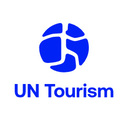UNWTO Releases A COVID-19 Technical Assistance Package For Tourism Recovery
The World Tourism Organization (UNWTO) has released a Tourism Recovery Technical Assistance Package to offer guidance to Member States in response to COVID-19. The package is structured around three main pillars: economic recovery, marketing and promotion and institutional strengthening and resilience building.
With tourism among the hardest-hit of all sectors, UNWTO has identified three possible scenarios for the months ahead. Depending on when restrictions on travel are lifted, international tourist arrivals could decline by 60-80% in 2020.
This could translate into a decline in export revenues from tourism of between US$910 billion to US$1.2 trillion and place 100-120 million jobs directly at risk. The social ripple effect is also feared to be at least equally challenging for many societies the world over.
Against this backdrop, the COVID-19 Tourism Recovery Technical Assistance Package is designed to support governments, the private sector and donor agencies face this unprecedented socio-economic emergency.
UNWTO Secretary-General, Zurab Pololikashvili says: "We must support the tourism sector now with real actions while we prepare for it to come back and be stronger and more sustainable. Recovery plans and programmes for tourism will translate into jobs and economic growth, not just within tourism itself but across the whole of societies. This package of support will help governments and business implement our Recommendations for Recovery"
Call for action: economic, promotional and institutional measures
Alongside the set of recommendations already released by UNWTO to call for action to mitigate the socio-economic impact of COVID and endorsed by the UNWTO Global Tourism Crisis Committee, the package identified three potential areas of intervention to accelerate the recovery of tourism: economic, promotional and institutional.
The COVID-19 Tourism Recovery Technical Assistance Package makes the case for policies and measures to be introduced to stimulate the economic recovery of the tourism sector. These should be introduced alongside the development of impact needs assessments and country-specific plans for tourism recovery, among other measures.
In terms of marketing and promotion, UNWTO stands ready to provide technical assistance to identify markets that can help accelerate recovery, addressing product diversification, and (re)formulating marketing strategies and promotional activities.
The third pillar, institutional strengthening and resilience building, is particularly aimed at enhancing public-private partnership and promoting collaborative efforts for tourism recovery, and, enhancing skills in crisis management and recovery.
Tourism for Sustainable Development
The technical support offered by UNWTO is designed to help Members work towards the 2030 Agenda for Sustainable Development and the 17 Sustainable Development Goals (SDGs). Several of these Goals directly relate to tourism, most notably the SDGs 8, 12 and 17, on 'Decent Work and Economic Growth', 'Responsible Consumption and Production', and 'Partnerships for the Goals'.
UNWTO is also working as part of the wider UN response to COVID-19, emphasizing the role tourism can play in shielding developing countries and the most vulnerable members of society from the worst impacts of the current crisis.
About UN Tourism
The World Tourism Organization (UN Tourism), a United Nations specialised agency, is the leading international organisation with the decisive and central role in promoting the development of responsible, sustainable and universally accessible tourism. It serves as a global forum for tourism policy issues and a practical source of tourism know-how. Its membership includes 166 countries, 6 territories, 2 permanent observers and over 500 Affiliate Members from the private sector.
Media enquires: [email protected]
UN Tourism Communications Department
+34 91 567 8100
UN Tourism
